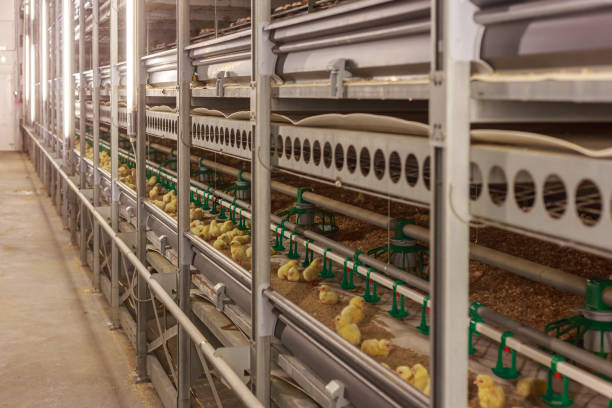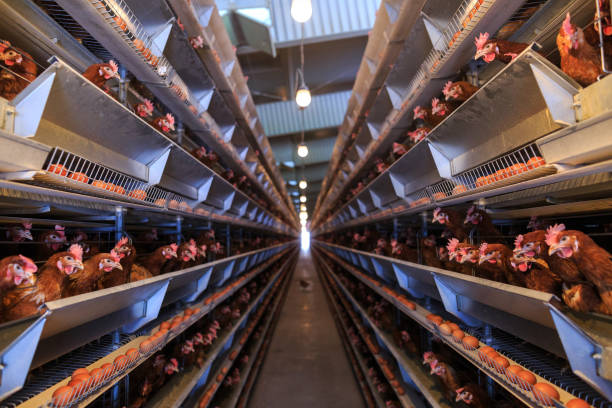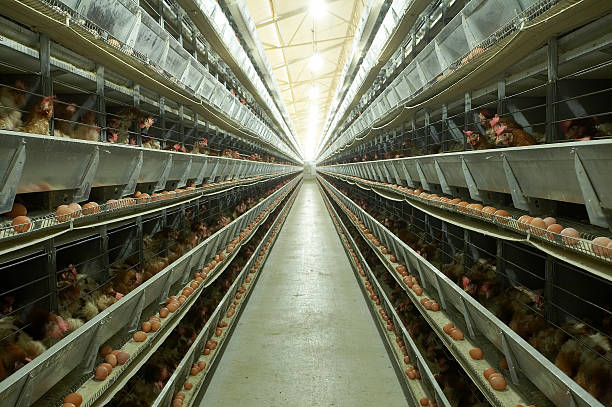
Sourcing Broiler Farming Equipment: Finding Reliable Suppliers in Africa
Sourcing Broiler Farming Equipment: Finding Reliable Suppliers in Africa
Africa’s broiler farming industry is experiencing significant growth, driven by increasing demand for affordable protein. As more people enter the market or expand their existing operations, the need for high-quality, reliable broiler farming equipment becomes crucial. However, finding the right suppliers in Africa can be a challenging task, requiring careful research and due diligence. This article aims to provide a comprehensive guide to sourcing broiler farming equipment in Africa, covering key considerations, essential equipment types, and strategies for identifying trustworthy suppliers.
Understanding the Broiler Farming Landscape in Africa
Before diving into the specifics of sourcing equipment, it’s important to understand the unique characteristics of the African broiler farming industry. Factors such as climate, infrastructure limitations, and access to financing often play a significant role in determining the types of equipment that are most suitable and the challenges that farmers face.
Many African countries experience high temperatures and humidity, which can significantly impact broiler health and productivity. Therefore, equipment designed to mitigate these environmental challenges, such as effective ventilation systems and cooling mechanisms, are absolutely vital. Transportation infrastructure in some regions can be unreliable, affecting the delivery and maintenance of equipment. Sourcing suppliers who offer local support and have a robust distribution network is essential.
Key Considerations When Sourcing Broiler Farming Equipment
Budget and Return on Investment (ROI): Determine your budget and calculate the potential ROI for different equipment options. While cheaper options might seem appealing in the short term, investing in durable, energy-efficient equipment with a longer lifespan often proves more cost-effective in the long run. Consider factors like feed conversion ratio, mortality rates, and labor costs when evaluating the ROI of different equipment choices.
Climate and Environmental Conditions: As mentioned earlier, Africa’s diverse climates demand equipment designed to withstand specific conditions. Consider ventilation, cooling, and heating systems appropriate for your region. Think about the impact of humidity on equipment lifespan and choose materials that are resistant to corrosion.
Biosecurity: Implementing strict biosecurity measures is crucial for preventing disease outbreaks. Choose equipment that is easy to clean and disinfect, helping to minimize the risk of contamination. Automatic drinking and feeding systems can also help reduce human contact with the birds, further enhancing biosecurity.
Scalability: Plan for future expansion. Select equipment that can be easily scaled up as your operation grows. Modular systems are often a good choice as they allow you to add components as needed without replacing the entire setup.
Ease of Use and Maintenance: Opt for user-friendly equipment that requires minimal training to operate. Also, consider the availability of spare parts and the ease of maintenance. Suppliers who offer training and technical support are invaluable in ensuring smooth operation and minimizing downtime.
Local Support and After-Sales Service: This is perhaps one of the more important considerations. Find suppliers who have a local presence or a strong network of service providers in your region. This will ensure timely access to technical support, spare parts, and maintenance services, reducing downtime and maximizing the lifespan of your equipment.
Essential Broiler Farming Equipment
Broiler Cages or Housing Systems: Choosing the right housing system is crucial for broiler welfare and productivity. Options include traditional deep litter systems and more modern cage systems. Cage systems offer advantages such as better space utilization, improved hygiene, and easier management. However, they also require a higher initial investment. Consider the pros and cons of each system and choose the one that best suits your needs and budget while considering the ethical implications and best practices for animal welfare.
Feeding Systems: Efficient feeding systems are essential for maximizing feed conversion and minimizing waste. Options include manual feeding, automatic chain feeding, and pan feeding systems. Automatic systems offer better control over feed distribution and can reduce labor costs. Selecting a system that handles feed efficiently and minimizes spillage helps with both profitability and overall hygiene in the broiler house.
Drinking Systems: Providing clean and readily available water is fundamental to broiler health. Nipple drinking systems are a popular choice as they minimize water wastage and reduce the risk of contamination. Cup drinkers are another option, but they require more frequent cleaning. The key is to ensure a constant supply of fresh water, ideally with an automatic system that adapts to the birds’ changing needs.

Ventilation Systems: Maintaining proper ventilation is vital for removing excess heat, moisture, and ammonia from the broiler house. Options include natural ventilation, fan ventilation, and tunnel ventilation. The ideal ventilation system will depend on the climate and the size of your operation. Investing in high-quality fans and controllers can improve air quality, reduce disease risk, and enhance broiler performance.
Heating and Cooling Systems: In regions with extreme temperatures, heating and cooling systems are essential for maintaining optimal broiler comfort. Options include gas heaters, electric heaters, and evaporative cooling systems. Consider energy efficiency when selecting these systems to minimize operating costs. Ensuring a consistent temperature range is important for broiler growth and minimizing stress levels.

Lighting Systems: Providing adequate lighting is crucial for stimulating broiler growth and activity. LED lighting is becoming increasingly popular due to its energy efficiency and long lifespan. A well-designed lighting program can improve feed conversion, reduce aggression, and promote overall well-being.
Manure Removal Systems: Efficient manure removal is essential for maintaining hygiene and preventing disease outbreaks. Options include manual scraping, automatic scrapers, and belt systems. Automatic systems can significantly reduce labor costs and improve biosecurity. Effective manure management is not only about hygiene but also about reducing ammonia emissions and creating a healthier environment for the broilers.
Strategies for Finding Reliable Suppliers in Africa
Trade Shows and Exhibitions: Attending agricultural trade shows and exhibitions in Africa and internationally is a great way to meet potential suppliers, see equipment firsthand, and learn about the latest technologies. These events provide a platform for networking and gathering information from multiple sources.

Online Marketplaces and Directories: Online platforms such as Alibaba, Made-in-China, and industry-specific directories can connect you with suppliers from around the world. However, it is crucial to conduct thorough due diligence before engaging with any new supplier. Check their credentials, read reviews, and request references.
Industry Associations and Cooperatives: Joining industry associations and cooperatives can provide access to valuable resources and networking opportunities. These organizations often have lists of reputable suppliers and can offer guidance on best practices.
Referrals from Other Farmers: Talk to other broiler farmers in your region and ask for recommendations. Experienced farmers can provide valuable insights into the reliability and performance of different suppliers and equipment brands.
Due Diligence: Verifying Supplier Credibility
Once you have identified potential suppliers, it is paramount to conduct thorough due diligence to verify their credibility and ensure that they can meet your needs.
Check their Business Registration and Licenses: Verify that the supplier is legally registered and licensed to operate in their country. This information is usually available from government agencies or business registries.
Request References and Contact Previous Clients: Ask the supplier for a list of references and contact their previous clients to inquire about their experience. Ask about the quality of the equipment, the level of customer service, and the timeliness of delivery.
Visit their Manufacturing Facility or Showroom: If possible, visit the supplier’s manufacturing facility or showroom to inspect their equipment and assess their production capabilities. This will give you a firsthand look at the quality of their products and their commitment to quality control.
Request Quotations and Compare Prices: Obtain detailed quotations from multiple suppliers and compare prices, features, and warranty terms. Be wary of prices that seem too good to be true, as they may indicate inferior quality or unreliable service.
Review Warranty and After-Sales Service Agreements: Carefully review the warranty and after-sales service agreements to ensure that you are adequately protected in case of equipment malfunction or failure. Make sure the agreements clearly outline the responsibilities of the supplier and the procedures for claiming warranty service.
Negotiate Payment Terms: Negotiate favorable payment terms with the supplier. Avoid paying the entire amount upfront, and consider using a letter of credit or other secure payment methods.
The Role of Technology and Innovation
Technology is playing an increasingly important role in broiler farming, and many innovative solutions are available to improve efficiency and profitability.
Automated Monitoring Systems: These systems use sensors and data analytics to monitor key parameters such as temperature, humidity, ammonia levels, and feed consumption. This data can be used to optimize environmental conditions and identify potential problems early on.
Precision Feeding Systems: These systems use sensors to monitor individual bird weight and adjust feed rations accordingly. This can improve feed conversion and reduce waste.
Disease Detection Systems: These systems use sensors and algorithms to detect early signs of disease, allowing for prompt treatment and preventing outbreaks.
Robotics and Automation: Robots can be used for tasks such as feeding, cleaning, and egg collection, reducing labor costs and improving biosecurity.
Conclusion
Sourcing broiler farming equipment in Africa requires careful planning, thorough research, and a focus on building long-term relationships with reliable suppliers. By considering the key factors outlined in this article, conducting thorough due diligence, and embracing technology and innovation, farmers can equip their operations for success and contribute to the growth of the African broiler industry. Remember that investing in quality equipment and reliable suppliers is an investment in the long-term profitability and sustainability of your broiler farming business. Don’t cut corners, and always prioritize the well-being of your birds alongside your financial goals. The success of your farm depends on it.
